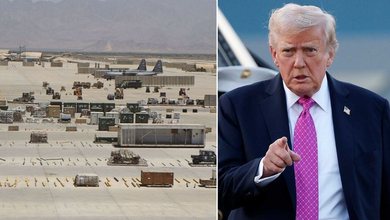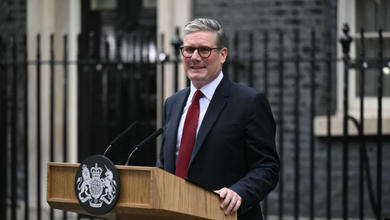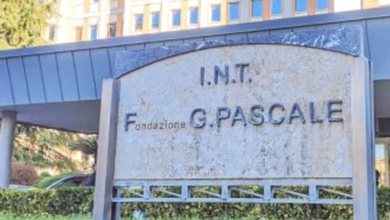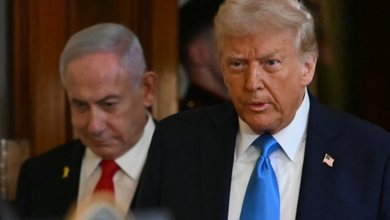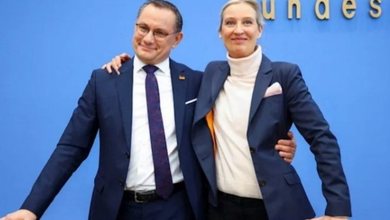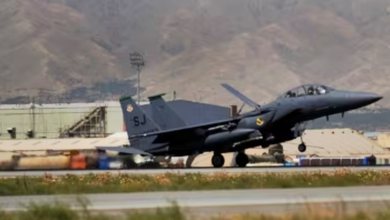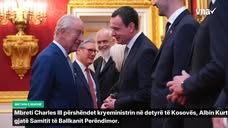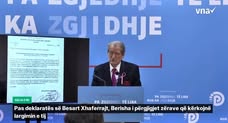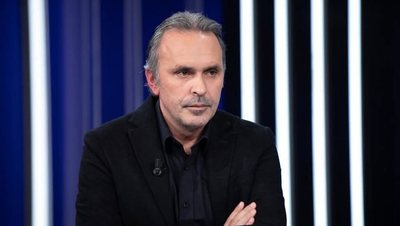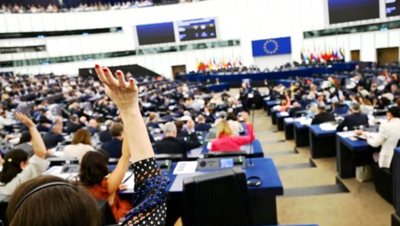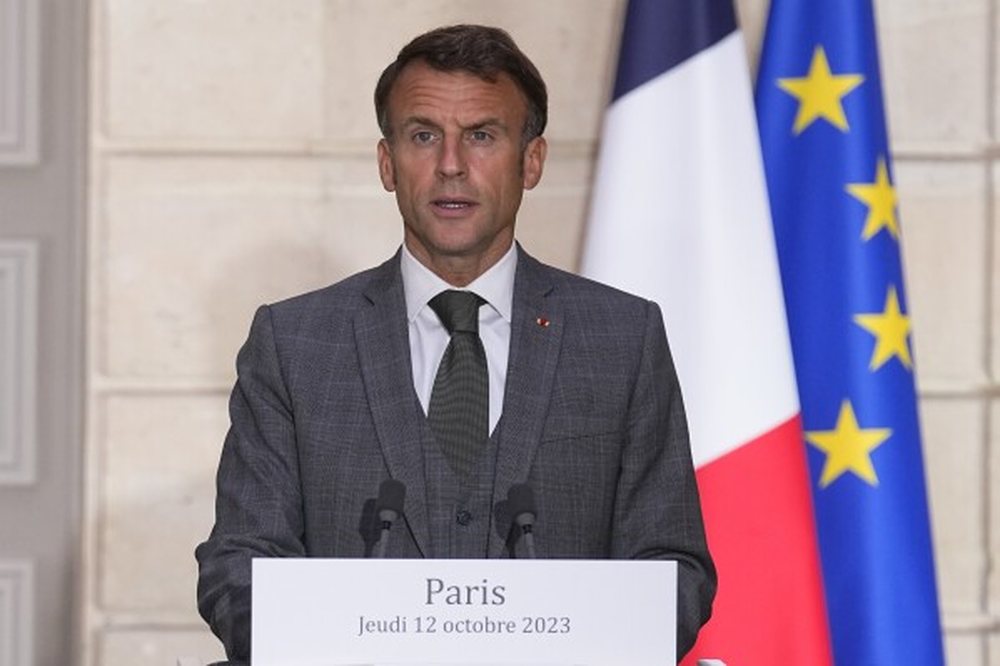
French President Emmanuel Macron is seeking to score a major diplomatic coup on Monday by rallying several Western countries to recognize a Palestinian state, but is still far from achieving real progress in Gaza.
The limits of what he can achieve at the UN General Assembly are clear. Major European powers like Germany and Italy will not join his initiative, and Macron's efforts are unlikely to influence US President Donald Trump or Israeli Prime Minister Benjamin Netanyahu to end the war.
The main idea in New York is the announcement of recognition of the Palestinian state by France, the United Kingdom, Belgium, Portugal, Luxembourg, Malta, Andorra, Australia and Canada. A French official called this a “diplomatic victory” for Paris.
Macron's ultimate goal is to show that there is a global counterweight to Trump's support for Israel's war in Gaza and to increase the pressure for peace. Comparisons have already been made to France's defiance under Jacques Chirac when it confronted the US over the 2003 invasion of Iraq, a stance expressed in a historic speech to the UN.
There is, of course, a strong domestic political motive. European leaders are aware of their need to stem the tide of public anger at the war, which is growing as the death toll in Gaza continues to mount. A YouGov poll has shown that support for Israel in Western Europe has fallen to historically low levels.
But how much real influence does Macron have? Even the French themselves admit that the sensational gestures in New York will not bring immediate changes to the humanitarian crisis in Gaza, while Israeli tanks continue the ground offensive. Neither Israel nor the United States will stop because of Macron.
Moreover, the French president's attempt to show a united front also reveals how divided Western Europe seems, especially when EU and NATO countries are treading carefully due to the war in Ukraine and Trump's pressure.
Germany, Italy, Greece and the Netherlands will not attend. German Chancellor Friedrich Merz will not be in the hall either, prioritizing domestic issues. Italian Prime Minister Giorgia Meloni has insisted she is not in favor of recognizing a Palestinian state “before it actually exists” and will arrive a day after Macron’s event.
"Nothing changes"
According to a European diplomat, who spoke on condition of anonymity, the calculation was that “Israel would make concessions” due to international pressure. But he acknowledged that this was not happening: “The US supports Israel and they are accelerating annexations in the West Bank.”
Another diplomat noted that as long as Israel has the support of its “great ally, the United States with its Iron Dome… it doesn’t change anything.”
For many observers, however, Macron’s push is not about immediate impact but about creating a turning point in Europe’s relations with Israel. Europe, haunted by its role in the Holocaust, has taken only small, symbolic steps against Israel, said Kristina Kausch, a Middle East expert at the German Marshall Fund, even as Europeans felt “uncomfortable with the way Israel treated the Palestinians.”
"But the developments of the last two years, especially the last few months, made it clearer that things cannot continue like this," she added.
For Kausch, the European Commission’s move last week to impose sanctions and tariffs on Israel represents a radical shift in European thinking. “It’s unprecedented,” she said. “Trade measures are usually only taken against authoritarian countries like Myanmar or Belarus.”
Under pressure
In the weeks and days leading up to Macron's conference on Palestine, the US and Israel have attempted to thwart France's diplomatic offensive.
Last month, Washington refused to grant a visa to Palestinian Authority President Mahmoud Abbas to attend the UN General Assembly.
Israel is considering punitive measures against France, while Netanyahu and his aides are trying at the last minute to convince Macron to link recognition of a Palestinian state to the release of Israeli hostages held by Hamas.
“If he will link recognition to the release of hostages, then Israel may accept it,” an Israeli official told POLITICO, speaking on condition of anonymity.
For France, this response is seen as proof that its diplomatic efforts are having an effect and that Israel and the US are becoming increasingly isolated.
“For Gazans, not much will change,” said former French ambassador to the Mediterranean, Karim Amellal. “But we are seeing that alliances are changing. It is now Israel and the US against most European countries, including Germany… and this dynamic will deepen their isolation.”
France's former ambassador to Syria, Michel Duclos, drew direct parallels with France's stance on the Iraq war in 2003. "France was weakened politically and economically, but it was still able to channel the sentiments of most countries," he said.
But another parallel is equally clear. As Duclos recalls, that French resistance in 2003 did not stop the invasion of Iraq or the subsequent years of chaos in the Middle East.
“It risks being a waste of time,” he said. The top European diplomat described Macron’s conference as “the last act of a president seeking to leave a legacy.”
Reason, reason, reason
The list of attendees at Macron's conference on Palestine is not very impressive as far as European leaders are concerned.
Spanish Prime Minister Pedro Sánchez, Belgian Prime Minister Bart De Wever, Portuguese President Marcelo Rebelo de Sousa and leaders from Luxembourg and Malta will attend Monday's event. The conference will be given a little more weight by the presence of Canadian Mark Carney and Australian Anthony Albanese, who are expected to give speeches.
But a clear sign that European resolve to stand up to the US and Israel is fragile is the fact that most other European leaders, even like-minded ones, have found reasons to avoid Macron's conference.
British Prime Minister Keir Starmer is trying to balance pressure from his party and avoiding criticism from Trump, who made a friendly visit to the United Kingdom last week.
Starmer is not expected to attend the UN meeting, leaving his place to Deputy Prime Minister David Lammy and Foreign Secretary Yvette Cooper. He has been criticised since taking office for spending too much time at international summits while many domestic issues remain unresolved.
German Chancellor Merz will also not attend, sending Foreign Minister Johann Wadephul in his place. Officially, his absence is related to domestic matters, such as parliamentary discussions on the next national budget.
This "coincidental" coincidence of schedules also allows the German Chancellor, a staunch opponent of recognizing a Palestinian state, to avoid direct confrontation with Paris on the international stage.
“The German government is not currently considering recognizing a Palestinian state,” Merz said Thursday night during a visit to Madrid. “We see such a step as one of the last steps, not one of the first, on the path to a two-state solution.”
Alongside Sánchez, who has taken a particularly tough stance on Israel among EU countries, Merz added: "It is no surprise that we can have different opinions on this issue. Of course, this is also related to German history."
Italian Prime Minister Meloni, known for her skepticism of Macron's initiatives, will also skip it, choosing to arrive in New York a day later. Last week, Italian Foreign Minister Antonio Tajani called efforts to recognize Palestine "absolutely useless."
“Recognizing a Palestinian state today is simply a way to give yourself a clear conscience and does not solve the problem,” he told the Italian Senate on Thursday.
A senior Greek official said the timing is not right: "We are fully in favor of the creation of a Palestinian state. However, we believe that unilateral recognition at this time does not bring useful results."
On Monday, Macron may manage to embellish the European divide with a powerful speech and a carefully choreographed conference, but the divisions matter when it comes to concrete action.
At the moment, there has not been sufficient support among EU countries to pass sanctions or tariffs against Israel, as the latter require a special majority.
But that could change. According to two diplomats in Brussels, if Israel takes steps like annexing territories after Macron's conference, EU countries that have so far opposed joint measures, particularly Germany, could change their stance.
Even then, however, the real power remains with Israel’s staunch allies in Washington. US Secretary of State Marco Rubio has openly called the French president’s plan “reckless,” saying it is “a slap in the face to the victims of October 7.”/ Politico.eu


